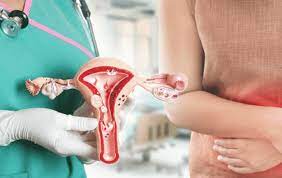A total hysterectomy is a surgical procedure to remove the uterus and cervix, sometimes involving the removal of the ovaries and fallopian tubes. This intervention is indicated in the presence of: severe endometriosis , leiomyoma and uterine fibroids, adenomyosis , uterine cancer, cervical cancer, persistent metrorrhagia, uterine prolapse and chronic persistent pain in the pelvic area. Total Hysterectomy requires specific preparation and general, epidural or spinal anesthesia (depending on the surgical technique used).
What happens after a total hysterectomy?
A total hysterectomy has several consequences that women should be aware of. After the operation, women of childbearing age can no longer become pregnant. This is the most important consequence of total hysterectomy . There is no reverse surgery that can restore the possibility of pregnancy. Irreversible loss of fertility can cause psychological suffering in the patient, which can even develop into clinical depression.
After surgery, women of childbearing age stop menstruating, but may still experience some symptoms associated with the ovulation process (due to the presence of ovaries). If a total hysterectomy is combined with surgery to remove the ovaries ( oophorectomy ), menopause will occur earlier than expected (early menopause). A total hysterectomy does not affect a woman’s sex life and does not protect against sexually transmitted diseases.
How to properly prepare for surgery?
If a woman smokes, she should stop smoking at least 2 weeks before surgery and continue for another 2 weeks after. Smoking increases the risk of surgical incisions becoming infected; In addition, it changes the blood supply to the skin, which slows down healing. You should also temporarily stop, starting a few days before a total hysterectomy , any drug therapy that alters the normal blood clotting process (any treatment based on aspirin, warfarin , heparin, etc. is suspended). The last meal the patient is allowed to eat is dinner the day before surgery.
Total laparoscopic hysterectomy
With total laparoscopic In hysterectomy, the surgeon's access to the removed organs is through 3 small incisions, which he makes at the level of the abdomen. After the organs are removed, the incisions are sutured and the wounds are bandaged. Total laparoscopic A hysterectomy is a minimally invasive solution: it effectively removes the uterus and cervix without the need for large incisions. This type of intervention is successfully used in their practice by specialists from the Bogolyuby MC . Minimum invasiveness of total laparoscopic Hysterectomy leads to a significant reduction in hospitalization and postoperative recovery.
How long does a total hysterectomy last ? The operation can last from 1 to 3 hours. For the duration of total Hysterectomy is influenced by the surgical technique used and the possible performance of other operations, such as removal of the fallopian tubes and ovaries ( salpingo-oophorectomy ).
How is the recovery going? After total laparoscopic After hysterectomy, the expected hospital stay lasts 2-3 days. It should be noted that a bladder catheter may be required after surgery. Suture removal usually occurs 5-7 days after surgery. It is possible that this time will be increased if the doctor considers that removing the sutures is premature.
At the end of hospitalization, women who have undergone total hysterectomy , must follow a recovery program that essentially involves rest from tiring activities. Avoid: travel before 3 weeks; sports in the first 4–5 weeks and sexual intercourse for 6 weeks after the intervention. In case of total laparoscopic After hysterectomy, complete recovery occurs within 4-5 weeks.


















